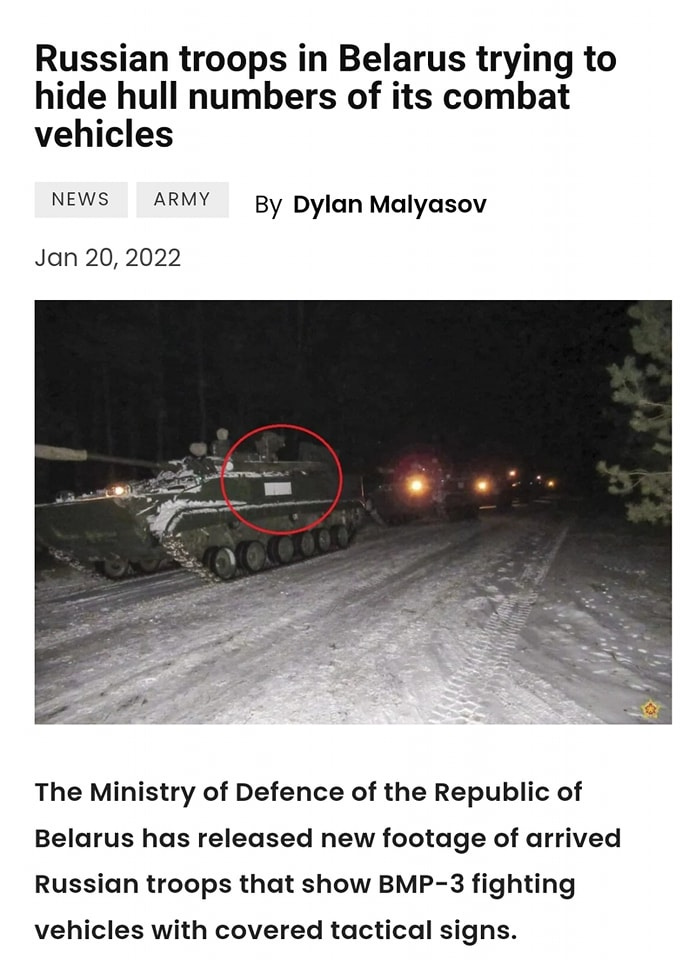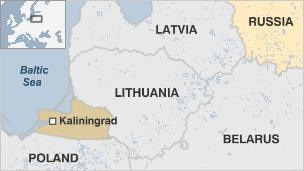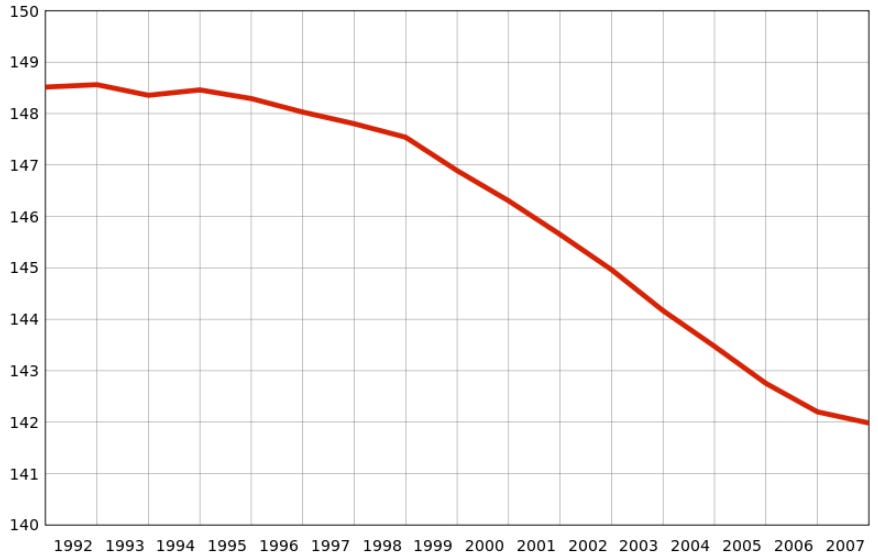5 Ways to Avoid War In Ukraine

Author’s Note: This story is being published early on a Thursday night instead of Sunday morning because of the timeliness of the subject. Most articles on this blog are intended to be a bit more timeless, but there is still great value in carefully analyzing this situation.
I have no interest in picking a political side in the U.S., except that I will very likely support whoever can keep unnecessary wars from happening and especially involving American forces in them. To that end, I find it necessary to put forth a clear explanation of why the Russians are threatening to invade Ukraine, and how to avoid that from happening. I am not pro- or against the Russian people specifically or in general, though I am no fan of Putin. And while I am solidly pro-American, I have extreme distaste for the warmongers trying to get the U.S. involved in another war — especially a proxy war with a nuclear power.
To that end, I will present five actions the U.S. government can take to avoid war in Ukraine. By “avoid war,” I don’t just mean avoiding American entanglements. I mean that these ways can help prevent Russia from invading Ukraine altogether.
But before listing the five options, one must understand why this situation is happening in the first place. It has to do with geography, demographics, and Turkey.
Background
In 1952, Turkey was granted NATO membership. NATO’s main purpose was to ally as many European nations as possible against any further Soviet expansion in that area. Turkey enjoyed a fairly long land and over-water border with the Soviet Union.
In 1962, unbeknownst to President Kennedy, the US began to mount nuclear-tipped missiles in Turkey1. Those missiles had flight times measured in dozens of minutes to reach Moscow and also many Soviet missile launch sites. The existence of these American installations in the border areas of their NATO ally Turkey scared the Soviets immensely. Because the missile flight times were so short, they represented a threat to the détente of Mutually Assured Destruction (MAD). These Turkey-based missiles could take out a good portion of the Soviets’ first response missile batteries and also were not that far from Moscow.
The Soviets’ response was to ship missiles to Cuba. This created a standoff that almost ended civilization, but instead was resolved by Kennedy and Khrushchev agreeing to remove their missile batteries away from such close border regions. This re-established the MAD paradigm which, insanely, was a big improvement. Side note: The Cold War was extremely terrifying when you analyze it closely.
One lesson the Russians learned was that having a NATO nation on your border is an extremely bad and risky thing, to be avoided at all costs. Because Russian history is replete with dire and existential threats to their nation, Russians don’t typically forget such lessons, not even 60 years later.
This is why Washington’s and Berlin’s repeated offers to Ukraine to join NATO are seen as dangerous by the Russians2. While Ukraine has been in talks on and off about joining NATO since 1992, in 2019 Ukraine actually changed their Constitution to practically require they move to become part of NATO. In June of 2021 at the Brussels Summit, NATO explicitly made adding Ukraine to NATO as part of their roadmap. Then the NATO Secretary General said that Russia would have no say in whether that happened. (Note: some of the links above are in Ukrainian, but you can right-click when at the site and Chrome will auto-translate to English pretty well. Information-wise, we live in amazing times.)
These NATO moves are very likely what precipitated the current crisis, because Russia sees a NATO-member Ukraine as an existential threat, because of geography.
You see, Eastern Europe has a few mountains and hills, but the great plain of Ukraine in particular connects Europe with modern Russia year ‘round. You can actually drive from Berlin to Moscow in 30 hours, and you’ll only have to change highways twice. And there are almost no sharp elevation changes between Poland and the Russian border, which is very good for tanks.
Again, due to Russia’s long history of land wars with Europe and being invaded many times via this route, Russians feel a strong need to have some form of buffer zone or control to prevent an aggressive European power from steamrolling into western Russia with columns of tanks3.
You may also think, why not just invade via Belarus or Lithuania or Estonia?
Well, Belarus has a fairly strong relationship with Russia, and so probably won’t allow an invasion through its land. In fact, there is evidence they are staging Russian vehicles near the Belarussian border with Ukraine:

But what about going north of Belarus via Lithuania or Estonia? If only Estonia, then all the troops must go through an ocean first. If going through Lithuania, then the column of tanks and troops must pass very near a chopped-off piece of Russia that few people seem to remember exists, the section that contains Kaliningrad:
Kaliningrad contains a large Russian base with missiles and troops which would attack any tank column as it tries to squeeze through between this part of Russia and Belarus.
But why would Russia worry about a land invasion from this direction? This thinking likely seems foreign to most Westerners. We perceive ourselves as never the aggressor. Who in Europe would ever invade Russia?
There are two reasons Russians think differently: a) they take a longer view of history than most, and remember a lot of land wars with Europe. They are probably right that over the timeframe of coming decades or more, the peaceful Europe of the last 75 years might be more an anomaly than a rule. The other reason is b) Russian demographics.
As Peter Zeihan points out, Russians stopped having enough babies 30 years ago. The fertility rate (the average number of children per childbearing age woman’s lifetime) has fallen tremendously.
In order for a society to maintain its population size, a fertility rate around 2.1 is necessary. While there has been some improvement since 2000, the Russian fertility rate has averaged 1.4 in the last few decades. The Russian population has fallen significantly:
This is incredibly important because it means that Russia is becoming less and less capable of sustaining their military. The lower population means lower economic output, fewer soldiers, a lower tax base, and less industry. Russia’s economy is largely extractive already, so their manufacturing and technological prowess falls further behind over time (thought it is still extremely impressive in many areas).
Russia becomes less capable of self-defense every year. In 2030, Russia will be weaker than it is today, and by 2040 there is a real chance it may not be able to consistently defend all its considerable borders.
So the Russians are very concerned about leaving the Ukrainian plain open. They perceive Ukraine gaining NATO status as a way that this area will become permanently accessible to Europe militarily, giving Russia no buffer zone against invasion (which they would have with a Russian-friendly or Russian-controlled Ukraine). And because the Russian population is shrinking and thus their military is stronger now than it will be in the future, they feel a need to establish protective zones now.
Given this background, we are now able to look at the ways the U.S. government can prevent Russia from invading Ukraine.
Ways to Stop the Invasion
None of these are magic bullets, but I think they would each likely work. There are major drawbacks to each action; there is no free lunch. But preventing war is worth many high prices.
1. Retract the Offer for Ukraine to Join NATO
Now that you understand the background, you can see that this NATO offer is the main trigger and reason behind the Russian threat to invade Ukraine. If this offer is officially rescinded, it is likely that Russia will not invade Ukraine. In fact, this is a demand Russia has now explicitly stated as something that will forestall invasion.
There are negatives to this, of course. It would make the US and Europe look somewhat weak. If the concern is that Russia won’t stop there and will then look to Estonia and Lithuania, those are valid concerns.
That said, I would wager that the Belarussian-Russian alliance and the Kaliningrad chokepoint are deemed sufficient border protection to the north by the Russians. If they felt confident that Ukraine would not become a base for future invasion, they would likely relent. It may be worth some future uncertainties in order to prevent nearly certain war.
But at the time of this writing, the US has taken this option off the table and refused to retract the offer for Ukraine to join NATO.
2. The US Announces Massive Increases in LNG to Europe
One reason Europe has a fairly meager response to Russian aggression is that they desperately need Russian natural gas. Right now, without it, tens or hundreds of thousands of Europeans would actually freeze to death in a strong winter4. But the US is awash in cheap natural gas thanks to the shale revolution. We can fairly quickly upscale our Liquid Natural Gas (LNG, compressed and chilled natural gas) to Europe by committing to creating more ports on both sides of the Atlantic. In as little as 5 years, we could be supplying more than 80% of Europe’s import needs for LNG.
This would be a HUGE economic and strategic loss for Russia. They gain astounding amounts of hard currency and leverage by being the number 1 supplier of natural gas to Europe.
By making this announcement, the US would instantly have very strong leverage over Russia. We are committing already to sending more LNG to Europe IF Russia cuts supply. But if we promised to pro-actively begin flooding Europe with US LNG, then we could dangle a reduction in this promised increase as a carrot to get Russia to back off in Ukraine. Then we would still begin sending more LNG to Europe, just increasing it annually at a much slower rate.
This would have the added benefits of further marginalizing Russia in the long term as we slowly become Europe’s main LNG supplier while sending a lot of hard currency to the US instead of Russia.
3. Announce MASSIVE Sanctions Against Russia If They Invade
Germany is already threatening to cut off many financial transfers (SWIFT transactions) if Russia invades, and this will hurt Russia. But as outlined in this article, The First Hyperpower, the ability of the US to completely destroy any economy on the planet is absolute and terrifying. The US could essentially cancel almost all financial transactions Russia makes with anyone outside its borders. We can also intercept and permanently seize most Russian money in Western Banks(!). We can even stop a surprisingly large number of transactions that are completely within Russian borders.
The effect would be to halve Russia’s GDP overnight. This would lead to mass starvation AND SHOULD NOT BE DONE. But it is so stark and strong a threat that even putting this on the table would very likely scare Russia away from invading Ukraine, just on the outside chance that we would go through with it (which we absolutely should never do because it would kill millions of people).
And of course there are many gradations of this. Most of the sanctions being mentioned today are not even half-measures, and Russia would likely would consider them not strong enough to outweigh their perceived benefit of invading Ukraine and gaining decades of buffer zone against future invasion. We can go way stronger.
4. Announce a New US Military Base In Ukraine
Now we get to the worse options, including brinkmanship. If the US declares a new US military base in Ukraine, to be built immediately, this may very well trigger an instant invasion. Russia knows that if they were ever to invade a country that contains a US airbase, they would practically be starting a war with the US.5 No sane country wants that because the US military is insanely strong in open ground wars against conventional forces. So Russia may invade before the base arrives just so they don’t have to worry about effectively declaring war on the US.
But if the US and Ukraine define and name and set aside land for the base as part of the announcement, and also say troops will arrive in 24 hours, then this may be enough to give Russia pause, and Russia will lose the ability to invade a country before a US base is there, even if only in name.
It’s a scary option, but it might work.
5. Instantly Grant Ukraine NATO Membership
This is also provocative brinkmanship. But it could actually work. The NATO alliance is primarily predicated on one thing: if one NATO ally is invaded, then ALL NATO partners will defend that ally, instantly and strongly.
If the US and Europe bypass all the formalities and just declare Ukraine a NATO ally, then Russia would not dare to invade. Such an invasion would certainly trigger a strong and full response by the US and most of Europe, and Russia would be pushed back in shame and very bloodied. It may deter an invasion. It may also cause Russia to desperately panic in a dangerous way.
___________________
These are the best ways, in my opinion, to prevent war in Ukraine by preventing Russian invasion.
There are many corollaries to each of these proposed actions, and they have some consequences that I have not discussed, and probably some that I simply cannot foresee.
One of the first things one learns in studying International Relations is humility.
But I am publishing this in hopes that as many people as possible will think as carefully as possible on this subject. In my article on Why Wars Start, I described in detail a calculus of tensions and pressures that help predict whether war is likely or not. I am afraid that the tensions and pressures I have discussed in this article argue for a very high likelihood of war between Ukraine and Russia.
In war, children are shot and women are raped. Teenage boys blink off the world stage in the hundreds each day in pain and agony. Every war lessens our humanity.
Blessed are the peacemakers.
The Jupiter missiles were originally planned to be deployed to France, but France refused the deployment of the missiles. Instead they were deployed to Italy and Turkey. These missiles were part of the Army’s limited war concept, where both sides would use tactical nuclear weapons, but war wouldn’t extend to strategic weapons aimed at each other’s cities. The provocative nature of the Jupiter missiles could be both a partial explanation for the Cuban Missile crisis and the memory of it an explication for this crisis.
This Wikipedia article on NATO-Ukraine relations provides very well-sourced context.
https://en.wikipedia.org/wiki/Ukraine%E2%80%93NATO_relations
Peter Zeihan brought this fact to broader Western Attention in his Absent Superpower book.
European dependence on Russian natural gas cuts both ways and has short term tactical implications. The Biden administration has announced plans to supply Europe with natural gas should Russia cut off the supply of gas to Europe, as Russia has threatened to retaliate if Europe enforced sanctions against Russia. This gas would come from the Middle East and Asia as the United States doesn’t yet have sufficient export capabilities to meet potential short term needs.
The protective tripwire effect explains why the US has been able to establish over 1,000 overseas military bases in over 150 foreign countries. The US also employed this tactic in the Cold War. Keeping US troops very close to NATO alliance country borders. Guaranteeing US troop involvement in a war.







